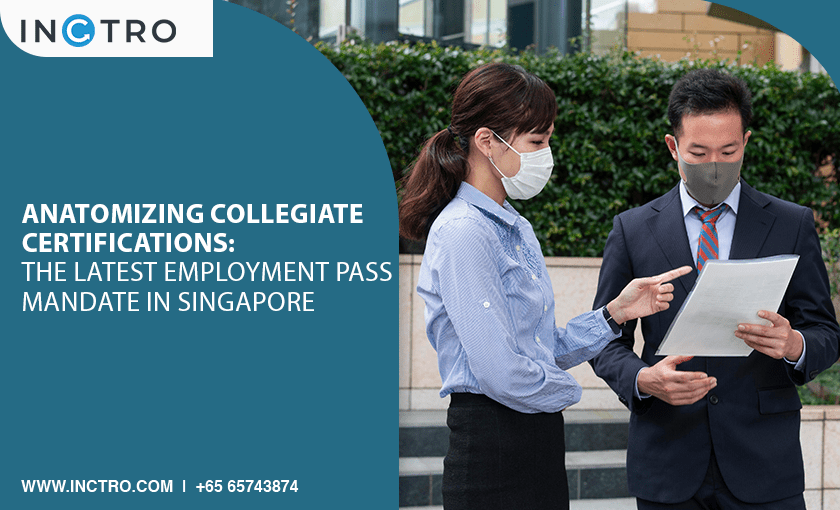- March 16, 2023
- Posted by: Vivek Sharma
- Category: Knowledge Base

Introduction
On March 1st, the Ministry of Manpower in Singapore announced a new mandate for the Employment Pass (EP) that requires employers to provide independent third-party testament to the diploma and higher qualifications of the expectant with effect from September 2023. This blog explores the reasons behind this new mandate and its potential impact on Singapore’s socio-economic sector.
The Background
The new mandate is a response to a 2021 investigation by the Ministry of Manpower that uncovered the use of falsified educational degrees by international graduates from a foreign universities. This led to the imprisonment and suspension of individuals charged with declaring fake academic qualifications while applying for the EP.
The Mandate
The new mandate is designed to “safeguard against gaming by submitting fraudulent educational qualifications” and will be implemented with the Complementarity Assessment Framework (COMPASS). This unique points-based program will be enforced from September 2023. The scholastic eligibility of the aspirants would significantly enhance the COMPASS Score, thereby dictating the potential sanctioning of the EP in the long run. In the case of renewal applications, however, the requirement is slated to be implemented in September 2024.
The Impact
The recent announcement reaffirms educational attributes, particularly those recognized by a “top-tier institution” as the most valued desideratum while seeking the EP. This can earn candidates up to 20 Points, the maximum per category. The new mandate has been praised by cybercitizens as a much-awaited step towards greater credibility, competitiveness, and profitability in the socio-economic sector of Singapore.
Possible Concerns
While the Ministry aims for unhindered execution and minimized disruption in the hiring process, the government has assured to shed more light on the verification protocols by consulting with tripartite associates, industry comrades, the Labor Department, and recruiters. Concerns include the sustainability of the new directive, which is subject to an ancillary assessment of professional skills and expertise, and the potentially hefty fees owed to third-party assessors, especially for large companies that require higher numbers of foreign workers.
Conclusion
The new Employment Pass mandate in Singapore is a welcome step towards greater credibility, competitiveness, and profitability in the socio-economic sector of Singapore. However, it is subject to an ancillary assessment of professional skills and expertise and the potential costs of third-party assessment, which could impact large companies. The government has assured that it will consult with industry and other stakeholders to ensure the smooth implementation of the mandate.
